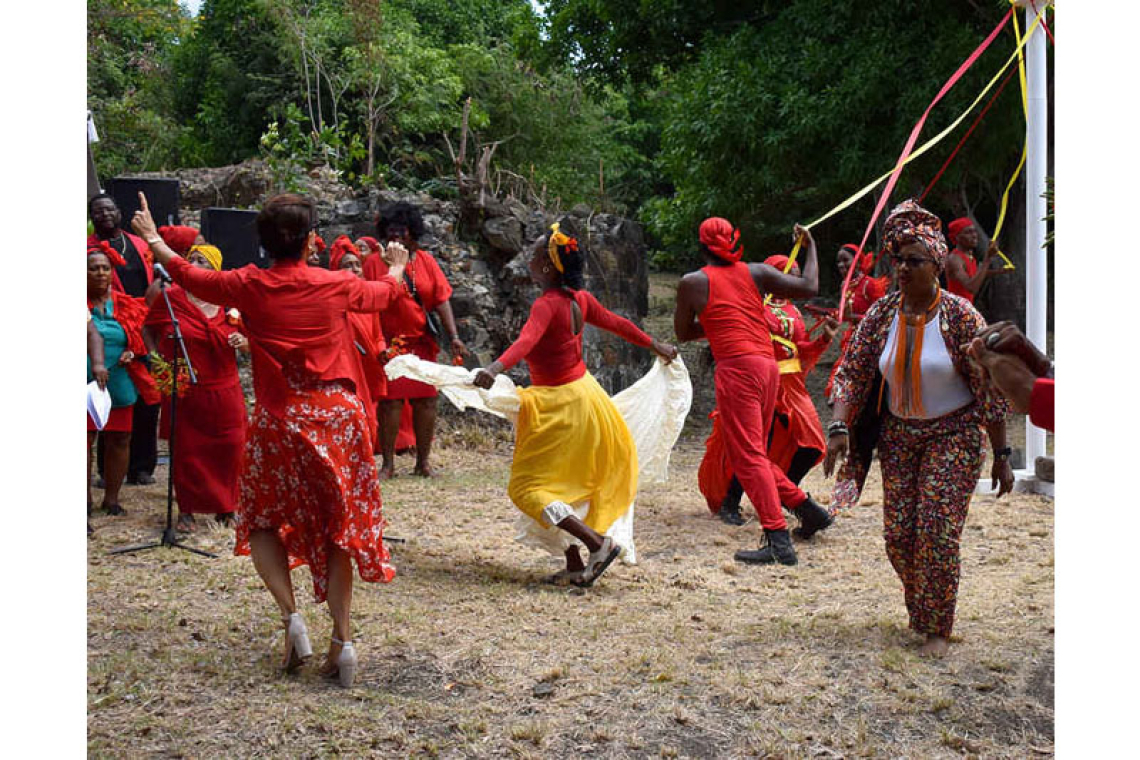Parliament Chairperson Sarah Wescot-Williams and MP Silveria Jacobs were the first two officials to join the dancers at the end of Monday morning’s Emancipation Day commemoration. Photo by Dimetri Whitfield.
CUL DE SAC--Emilio Wilson Park was awash in red on Monday morning as crimson-clad officials, performers and spectators helped to celebrate the 161st anniversary of the abolition of slavery in St. Maarten and the rest of the Dutch Caribbean.
The theme of this year’s Emancipation Day celebration was “Before”, which, according to the Ministry of Education, Culture, Youth and Sport (ECYS), was chosen to capture the time before enslavement, the arduous journey to emancipation and the steps that the enslaved community took to secure their freedom.
An ecumenical service formed the first part of the event, followed by a cultural manifestation that featured performances by prominent local musicians, singers, poets, dancers and storytellers.
There were speeches by Governor Ajamu Baly, caretaker Prime Minister Dr. Luc Mercelina, caretaker Minister of Justice and acting ECYS Minister Lyndon Lewis and Parliament Chairperson Sarah Wescot-Williams.
Among the attendees were also caretaker Minister of Public Housing, Spatial Planning, Environment and Infrastructure VROMI Patrice Gumbs; caretaker Minister of Tourism, Economic Affairs, Transport and Telecommunication (TEATT) Grisha Heyliger-Marten; caretaker Minister of Public Health, Social Development and Labour VSA Veronica Jansen-Webster; and Members of Parliament (MPs) Silveria Jacobs, Melissa Gumbs, Ludmila de Weever and Sjamira Roseburg.
A notable segment of the event highlighted acts of resistance, with a group of nine reading almost-200-year-old letters from local officials to request that their counterparts in neighbouring territories return runaway slaves, as well as pieces of legislation aimed at keeping the enslaved in bondage.
Acts of resistance ultimately led to the enslaved being granted de-facto freedom in early June 1848, a full 15 years before the proclamation of emancipation. Local authorities at the time feared unrest and continued mass escape of the enslaved population to the French side, where slavery had been abolished only days before.
The commemoration on Monday morning to mark 161st anniversary of emancipation ended with officials and attendees dancing passionately to the sound of Respeck Band’s early 2000s anthem “Freedom”, in the middle of Emilio Wilson Park, the site of a former 18th century sugar plantation where enslaved men, women and children once danced too in spite of the horrors of slavery.
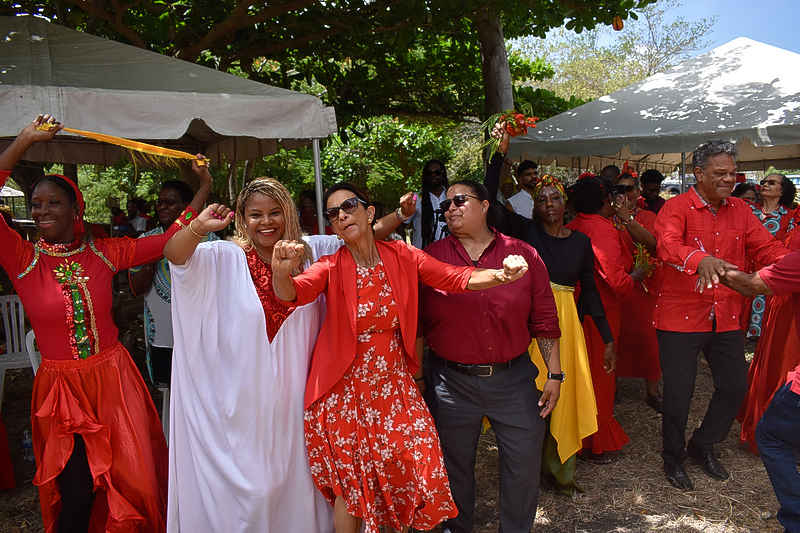
Ministers and MPs kicked up some dust as they danced with performers and spectators at the end of Monday’s Emancipation Day commemoration. Photo by Dimetri Whitfield.
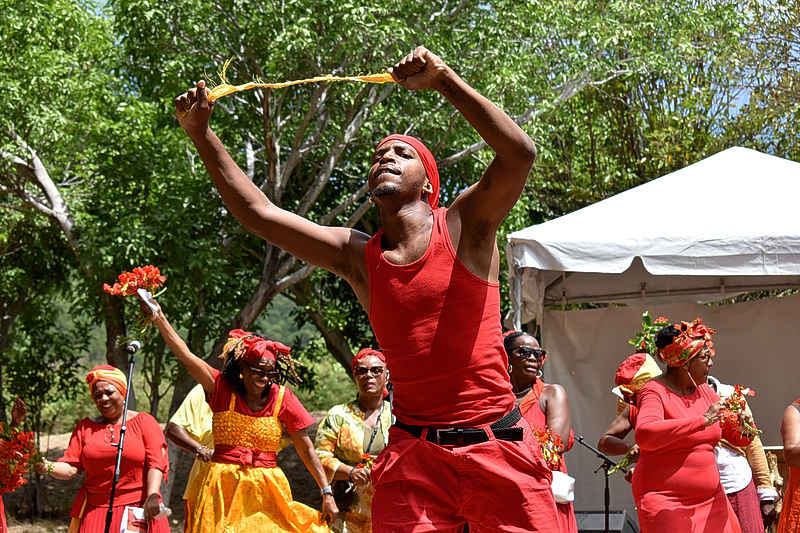
Monday’s cultural manifestation to commemorate the emancipation from slavery featured performances by prominent local musicians, singers, poets, dancers and storytellers. Photo by Dimetri Whitfield.
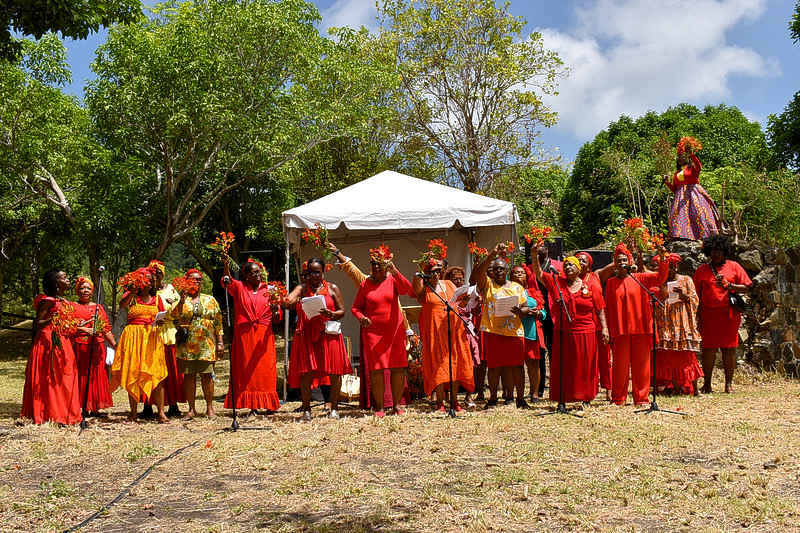
Singers holding up flamboyant tree leaves and flowers during their rendition. Flamboyant trees were probably in bloom on July 1, 1863, when slavery was officially abolished in St. Maarten and the rest of the Dutch Caribbean. Photo by Dimetri Whitfield.
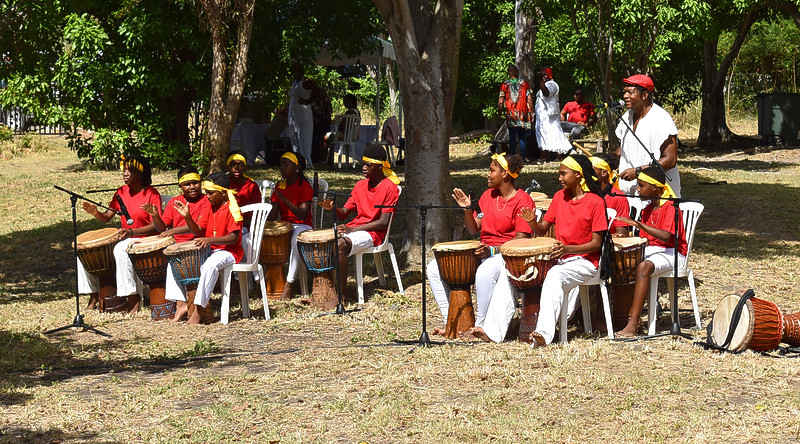
A notable segment of Monday’s event highlighted acts of resistance, with this group of nine reading almost-200-year-old letters from local officials to request that their counterparts in neighbouring islands return runaway slaves. Photo by Dimetri Whitfield.
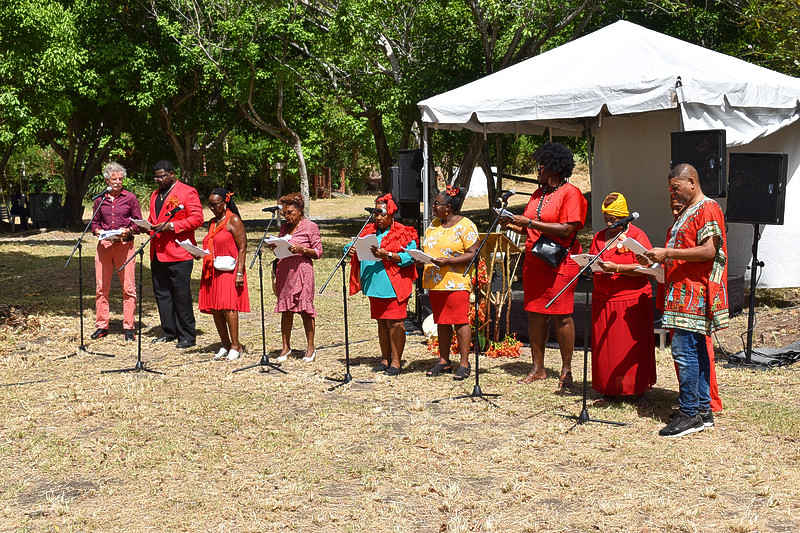
Young drummers and their teacher Souleymane Camara, originally from Guinea-Conakry and who hails from a line of Manding praise singers and musicians. Photo by Dimetri Whitfield.
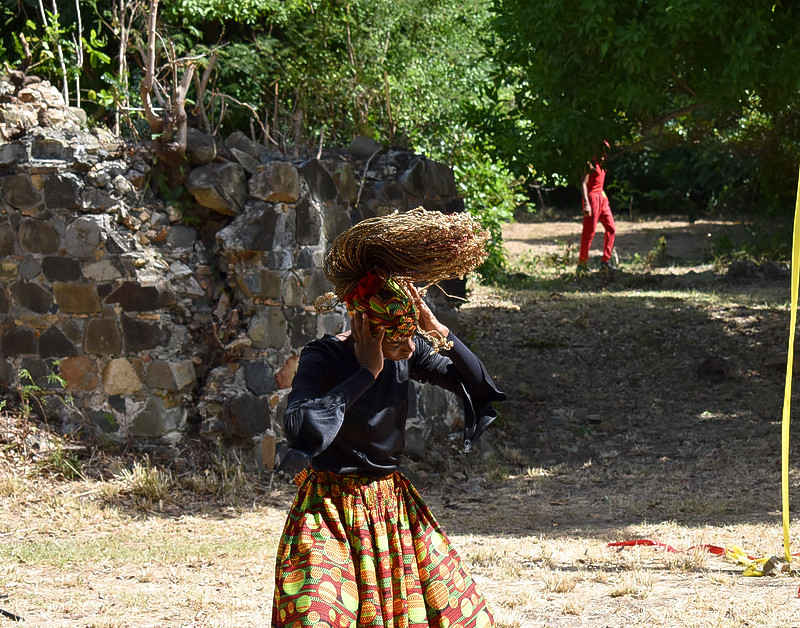
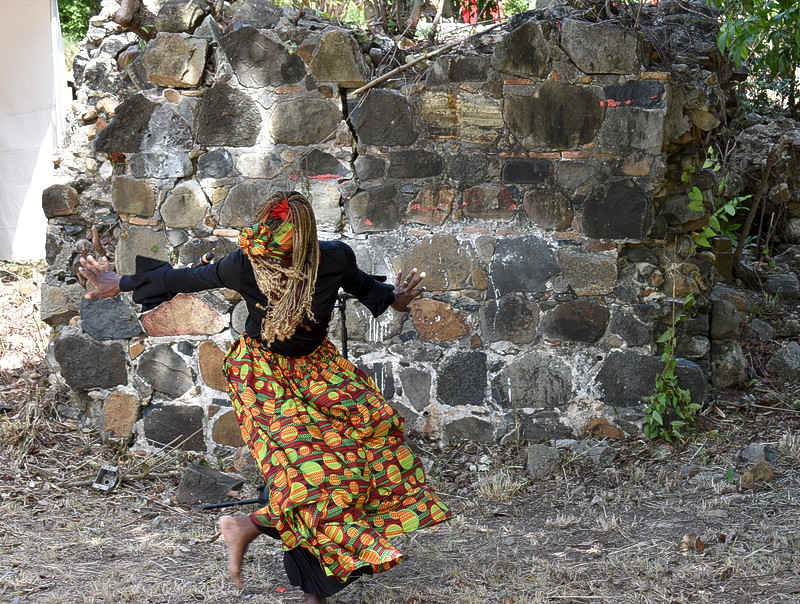
Dance was one of the ways that Monday morning’s Emancipation Day commemoration event honoured the sacrifices of St. Maarten’s enslaved community. Photo by Dimetri Whitfield.



